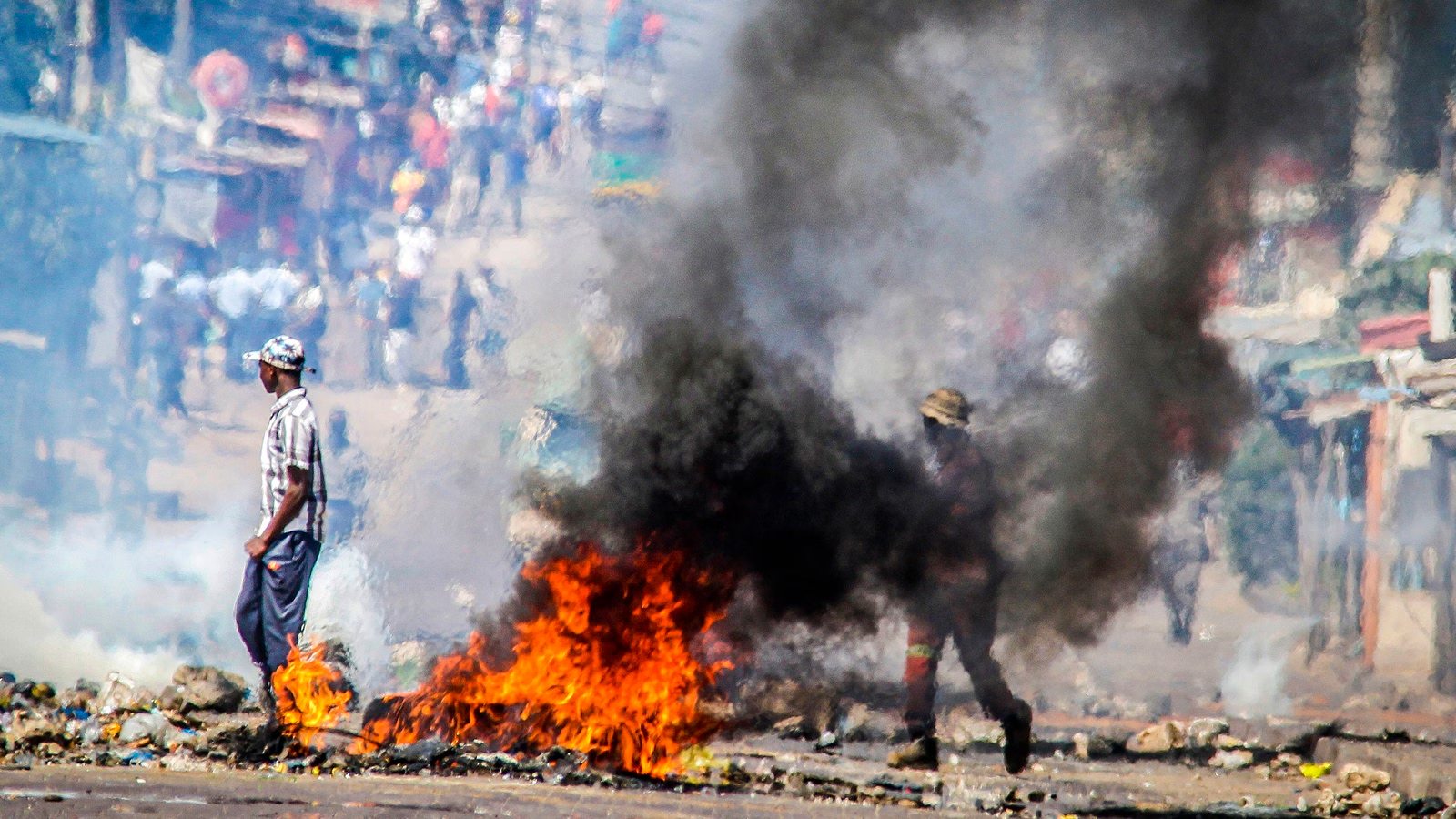The confirmation of Mozambique’s governing party, Frelimo, as the winner of the contested elections has ignited widespread unrest, leading to fatalities, injuries, and significant upheaval.
The aftermath of the Constitutional Council’s decision reflects deep political divisions and a population increasingly frustrated with corruption and governance issues.
The Unrest and Its Immediate Consequences
Following the Constitutional Council’s ratification of the October 9 election results, Mozambique has been engulfed in violent protests. At least 21 lives have been lost, including two police officers, with over 25 individuals injured, among them 13 officers.
Interior Minister Pascoal Ronda detailed these grim statistics during a press conference, underscoring the severe violence and unrest sweeping across the nation.
Protesters, angered by allegations of electoral manipulation, targeted public infrastructure, including police stations, banks, and petrol stations, with vandalism and arson.
Read : 10 Children Killed by Security Forces in Mozambique’s Election Protest
Reports from Maputo highlight the intensity of the protests, characterized by roadblocks and burning tires, as citizens expressed their discontent with the election outcome and years of systemic issues. Opposition supporters have accused Frelimo of electoral fraud, claims the governing party denies.
Read : Global Poverty Watch : top 10 poorest countries in the world in 2024
Security forces have responded with a heavy hand, deploying armed personnel to critical areas to restore order. Over 78 individuals have been arrested, signaling the government’s zero-tolerance approach to dissent. However, human rights groups have raised concerns over excessive use of force by Mozambican security forces, adding to the tensions in this volatile period.
A History of Discontent and Election Controversies
Mozambique’s political landscape has long been fraught with accusations of corruption, unemployment, and rigged elections, contributing to public distrust of Frelimo’s leadership.
Daniel Chapo’s victory in the recent presidential elections has been a flashpoint for opposition groups, particularly supporters of Venancio Mondlane. The opposition leader called on his followers to prepare for “difficult days ahead,” signaling that resistance to the election results would not subside easily.
This unrest is not an isolated incident. Mozambique has witnessed similar disputes in past elections, with accusations of voter suppression and electoral fraud tarnishing the democratic process.

Civil society organizations and election observers have repeatedly criticized the lack of transparency and fairness in the electoral system, which they argue disproportionately favors the ruling party.
Since the electoral authorities declared Chapo the winner, the protests have escalated, resulting in over 130 deaths since late October. These fatalities underscore the deep-rooted frustrations of a population grappling with economic challenges and political exclusion.
For many Mozambicans, the elections represent not just a political choice but a referendum on the governance of a nation struggling with entrenched inequality and systemic corruption.
The Broader Implications for Mozambique’s Stability
The ongoing unrest poses significant risks to Mozambique’s social and political stability. The government’s response, marked by increased military presence and arrests, may quell immediate disruptions but could exacerbate tensions in the long run.
Civil society groups warn that addressing the symptoms of the unrest without tackling its underlying causes—corruption, unemployment, and lack of political inclusivity—will only lead to a cycle of protests and repression.
Economic activities have also been disrupted by the protests. Reports of protesters demanding money from motorists at roadblocks highlight the desperate measures some individuals are resorting to amidst economic hardships. The unrest has paralyzed parts of the country, with businesses, public services, and daily life severely affected.

International observers are closely monitoring the situation, with calls for restraint and dialogue between the government and opposition. The African Union and other regional organizations may need to mediate to prevent further escalation and foster a path toward reconciliation.
However, the success of such efforts will depend on the willingness of both sides to engage in good faith and prioritize the nation’s stability over political ambitions.
Mozambique stands at a crossroads, grappling with the aftermath of contested elections and the ensuing unrest. The fatalities and injuries from the protests underscore the urgent need for dialogue and reforms to address the grievances of the population.
While the government has tightened security measures, the long-term stability of the nation will depend on its ability to rebuild trust, ensure electoral transparency, and provide economic opportunities for its citizens.

